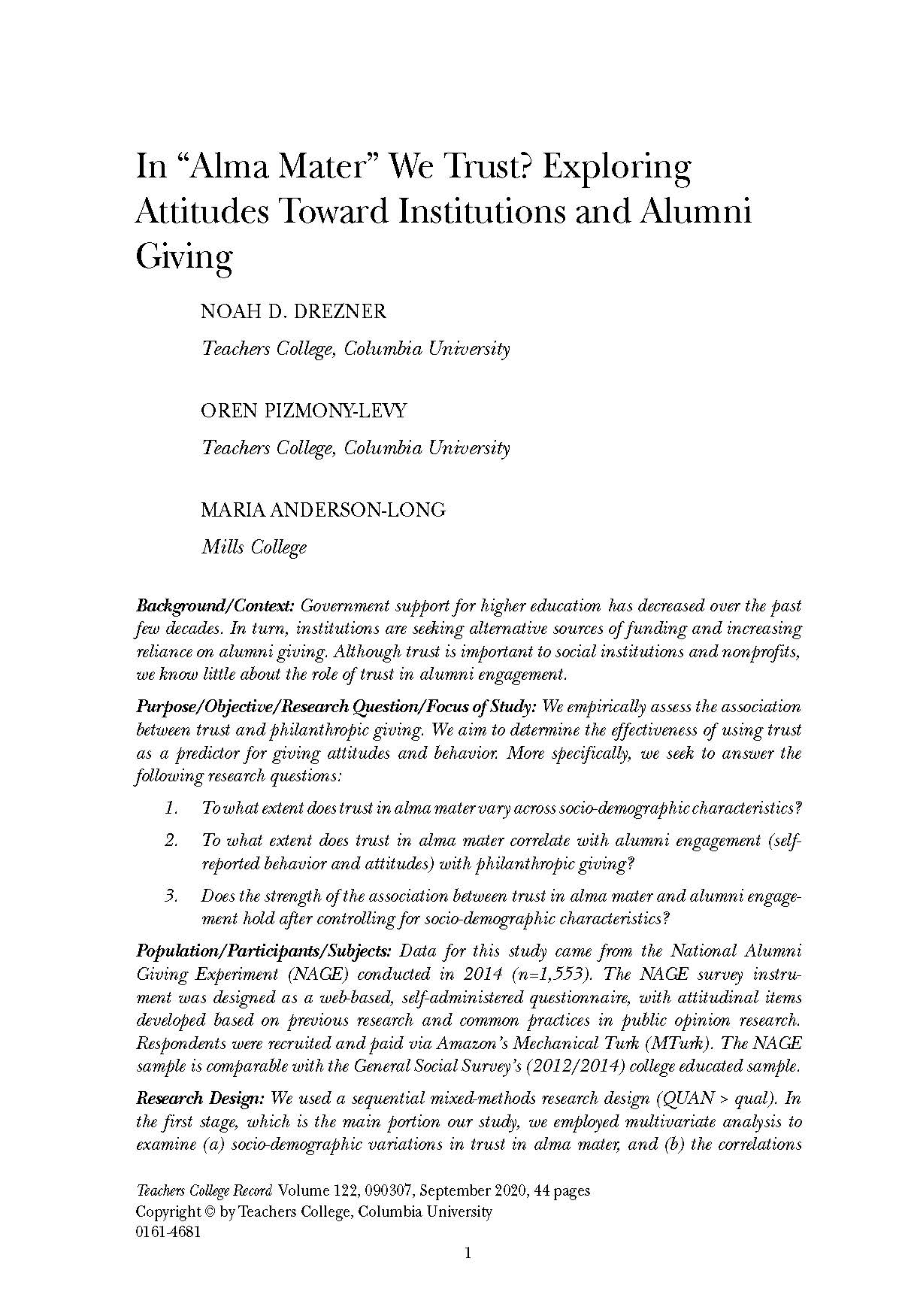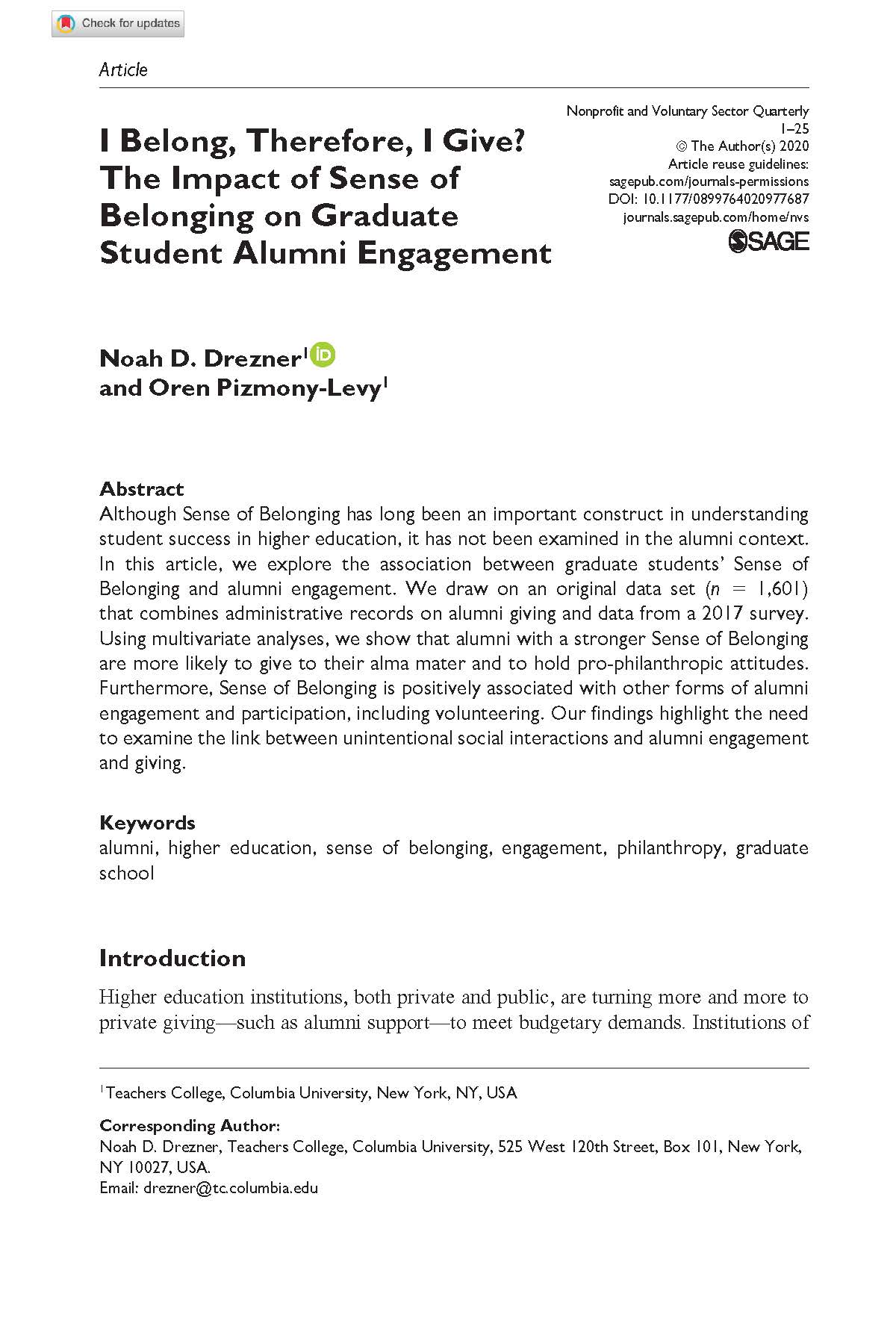Social Factors Contributions to Alumni Giving: Trust & Sense of Belonging
The multi-disciplinary nature of philanthropic studies lends to numerous approaches and theoretical and empirical debates. Much of the existing literature on charitable giving focuses on donor characteristics; including mechanisms that driving giving such as awareness of need, solicitation, costs and benefits, altruism, reputation, psychological benefits, value, and efficacy. However, scholars have given little attention to the social factors that contribute to philanthropic giving. In other words, to what extent do social interactions that are not intended to facilitate giving shape philanthropic giving.
Two such social factors are Trust and Sense of Belonging. In one study we operationalize philanthropic trust as the confidence alumni have in their institution’s follow-through on their commitments to spend gifts as donors requested. Using the National Alumni Giving Experiment dataset, we find that philanthropic trust impacts alumni engagement with their alma mater.
Scholars have found Sense of Belonging to be “a basic human need, a fundamental motivation, sufficient to drive behaviors and perceptions.” Within the realm of higher education, Sense of Belonging is also associated with numerous positive, prosocial, and productive outcomes including influences on academic achievement, retention, and persistence. In another study, using the 2017 Graduate and Professional School Alumni Engagement Survey, we explore the association between graduate students’ sense of belonging and alumni engagement. We find that sense of belonging is significant in predicting donation patterns (behaviors) and philanthropic attitudes. Further, sense of belonging is positively associated with other forms of alumni engagement and participation, including volunteering.

